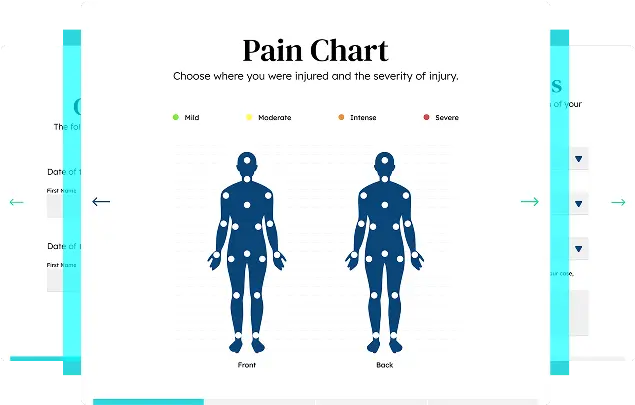Massachusetts Trucking Regulations Lawyer
Understanding and navigating complex trucking regulations can be overwhelming, especially after an accident. At DiBella Law Offices, our Massachusetts Trucking Regulations Lawyers have the knowledge and experience to help you hold negligent trucking companies accountable. We’ll fight to ensure you receive the compensation you deserve while guiding you through every step of the legal process.
Get Free Advice About The Compensation You Deserve
Home » Massachusetts Personal Injury Lawyer » Massachusetts Truck Accident Attorney » Massachusetts Trucking Regulations Lawyer
Reviewed by: Christopher DiBella
April 9, 2025
If You’ve Been the Victim of a Massachusetts Truck Crash, DiBella Law Injury and Accident Lawyers, Can Help
The commercial trucking industry is vital to this nation’s economy. Each day, truck drivers take interstate highways to crisscross the country and transport their goods. But there is no question that these trucks, with their considerable size and mass, can be frightening to drive alongside.
The commercial trucking industry is regulated by the Federal Motor Carrier Safety Administration (FMCSA), and held to strict guidelines regarding the amount of time truckers are allowed to operate their vehicles, how much freight their trucks may carry, and how their vehicles are to be maintained. Here are the basics.
The FMCSA Rules of the Road
Commercial vehicles that pass through Massachusetts are regulated by statutes put forth by FMCSA. Large trucks are organized according to their size, weight, and type, and each individual class has its own commercial driver’s license that must be obtained prior to operating those vehicles. The following is a list of CDL classes and their requirements:
- Class A CDL: This license is required for any driver to operate any combination vehicle that has a total weight of 26,001 lbs. or more. Flatbed trucks, tractor-trailers, and livestock carriers all fall under a Class A CDL.
- Class B CDL: A Class B license still requires a total weight of 26,001 lbs. or more, but with a single vehicle. For example, box trucks, dump trucks, and other vehicles fall under this classification.
- Class C CDL: Class C licenses are typically reserved for vehicles that are transporting 16 or more occupants, or those that are carrying hazardous materials. HazMat vehicles, passenger vans, and similar vehicles qualify as Class C.
Once drivers receive their CDL licenses and step behind the wheel, they will be held to strict regulations regarding the maximum amount of time they may operate their vehicles. This is referred to as the “Hours of Service” (HOS) rule, and it is meant to prevent fatigued driving crashes.
For cargo-carrying drivers in Massachusetts, the rules regarding their hours of service are:
- 11-Hour Driving Limit: After 10 continuous hours off-duty, drivers may operate their vehicles for up to 11 hours total.
- 14-Hour Limit: Drivers may not exceed 14 consecutive hours on-duty after 10 hours off-duty.
- 60/70-Hour Limit: Drivers are not allowed to operate their vehicles after 60 or 70 hours on duty over the course of 7 or 8 consecutive days. Following the start of a new week, the driver must spend at least 34 hours off-duty.
When drivers ignore these rules, they can get into serious car accidents. Occasionally, trucking companies compel their employees to break the rules and exceed HOS regulations, often to save time and money. Truck drivers may feel pressured to take stimulants to stay awake, or push themselves to exhaustion to meet their deadlines. Both will result in excessive fatigue and impairment, which will lead to irresponsible decision-making. When coupled with the fact that they are operating vehicles of massive size and weight, the consequences for other drivers can be catastrophic.
We’ve offered crucial support and guidance to individuals who have suffered injuries, ensuring their financial and emotional well-being.
Maintaining Commercial Trucks
Under federal law, trucking companies must require their vehicles to be properly inspected, repaired, and maintained prior to sending them out on the road. Additionally, all drivers must complete a comprehensive pre-inspection and post-inspection of the vehicle to ensure that it is road-safe and has not suffered any damages.
When it comes to the guidelines for truck maintenance, overloading the vehicle is a common – and dangerous – violation. When a company allows its truck to be loaded with freight that exceeds the established weight limits, it can lead to numerous consequences on the road. An overloaded truck increases the risk of an accident, thanks to its effects on the vehicle’s braking system and turning capabilities. Too much weight on a commercial truck will alter the vehicle’s center of gravity as well, making it especially difficult to perform a turn or make a sudden stop, and much more likely to rollover.
Get immediate case evaluation with no cost or obligation to you in less than 5 minutes.

Work With an Experienced Massachusetts Truck Accident Lawyer
The federal regulations for trucking companies are intended to prevent unnecessary accidents. Whether it was a company’s decision to save the bottom line, or just a negligent driver’s behavior, any time these rules are broken and it leads to you or a loved one suffering a serious injury, you’ll want to hold the right parties accountable.
At DiBella Law Injury and Accident Lawyers, we are committed to helping victims of truck accidents seek the financial compensation they deserve. Victims often suffer severe bone fractures, traumatic brain injuries, spinal cord damage, or worse. Don’t let the negligence of a truck driver or a trucking company affect your life any more than it already has. Contact a Massachusetts truck accident attorney at DiBella Law Injury and Accident Lawyers, at (978) 396-2464 to get started.
